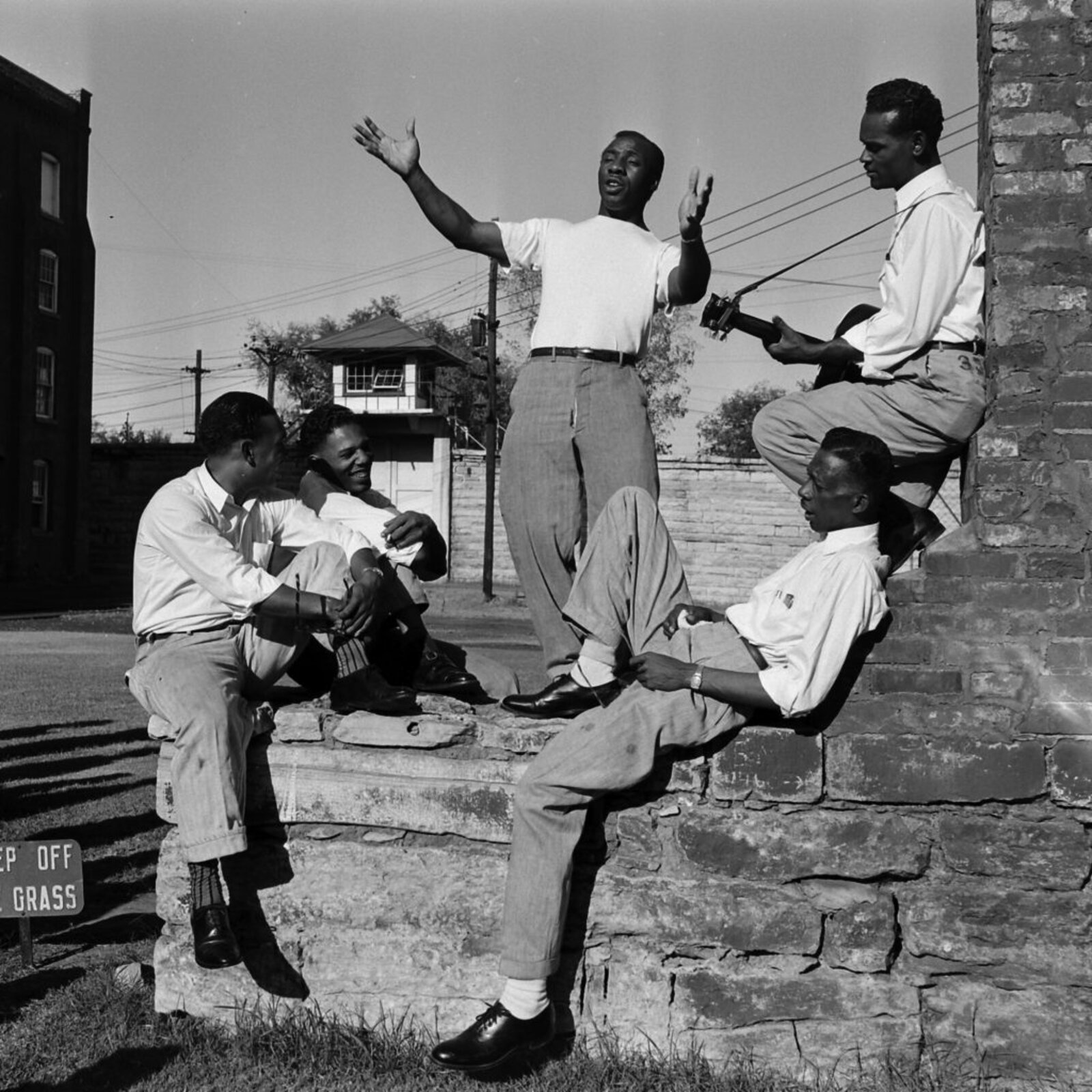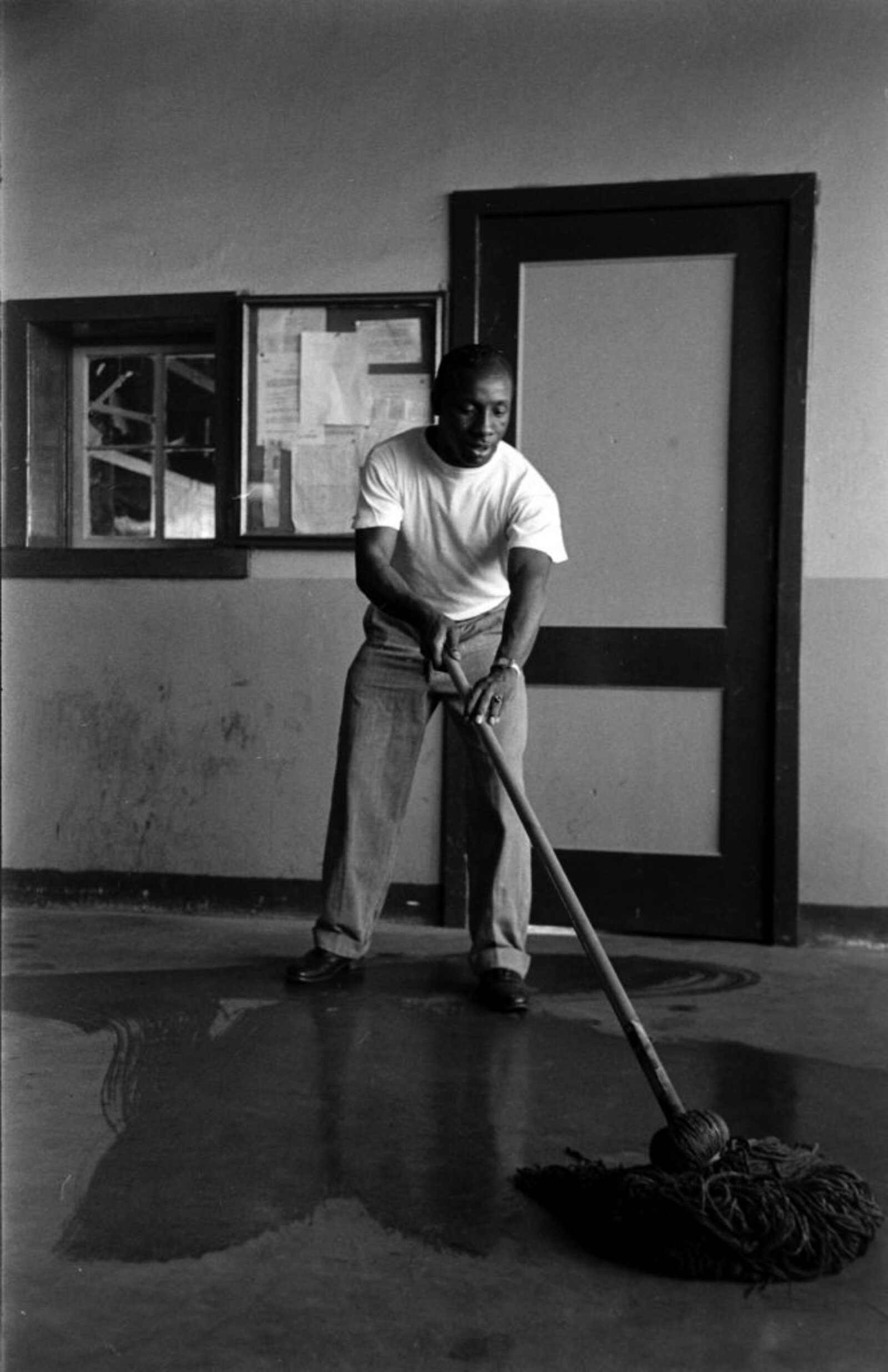

Prison Bands: The Prisonaires
The Prisonaires were a doo-wop group – doo-wop being a vocal-based rhythm and blues genre created by African American communities in the 1940s. They rose to fame, not least with their song Just Walking in the Rain, which put them firmly on the (not only American) musical map. In June 1953, five musicians walked into Sun Records’ studio in Memphis. It could have been a typical 1950s story – dozens of young hopefuls came to Sam Phillips’ studio in search of a lucky break and overnight success. But this group arrived in a prison transport van from Nashville, escorted by armed guards.
All five men were serving prison sentences at the Tennessee State Penitentiary. The band’s leader, Johnny Bragg, had been convicted in 1943 at the age of 17 on six counts of rape – charges he always denied. The Prisonaires formed nearly ten years later, when Bragg was joined by two gospel singers, Ed Thurman and William Stewart, both serving 99-year sentences for murder. The group was completed when John Drue Jr. (three years for theft) and Marcell Sanders (up to five years for manslaughter) came on board.
Bragg sang lead vocals; Drue and Thurman provided the tenor parts; Sanders sang bass; and finally, Stewart – accompanying them on guitar and baritone vocals – completed the sound.
The band’s big break came thanks to a radio broadcast. Joe Calloway, a radio producer, and his team reported from the prison and were deeply impressed by the group’s talent. Calloway arranged a live radio performance that caught the attention of Sam Phillips, founder of Sun Records. Phillips acted immediately, arranging for the men to be brought to Memphis to record several tracks – including Just Walking in the Rain.
According to a contemporary newspaper article, the recording session lasted fourteen hours, and Phillips was amazed by the musicians’ precision and professionalism. Just weeks later, the band made their public debut – and the record sold 250,000 copies. The Prisonaires’ success helped to launch Phillips’ own legendary career.
Tennessee Governor Frank Clement, then still a young man, supported the inmates’ musical pursuits, seeing them as a form of rehabilitation. With his permission, the band toured across Tennessee and occasionally beyond. They performed in churches and prisons, and were even invited to play at the governor’s residence. Between 1954 and 1959, all members of the band were released on parole – though Johnny Bragg was repeatedly reimprisoned and did not gain full release until 1977.
The song Just Walking in the Rain was later covered by Johnnie Ray, whose version reached No. 2 on the Billboard charts – and earned him a fortune.
The original authors never became superstars. They gained recognition, performed in several states, and had their share of fans. They remain striking examples of how music can quite literally set one free. But life does not always carry talent to the heights it deserves – especially when prison walls, quite rightly, stand in the way.

Johnny Bragg Tennessee, 1953.
Photo: Robert W. Kelley
Bragg continued writing songs later on. In 1956, after Sanders was released on parole, he founded a new group called The Sunbeams, later renamed Johnny Bragg and the Marigolds. Several line-up changes followed, and this band too achieved notable success.
After his final release, however, Bragg worked as a gravedigger in a cemetery.
Stewart died of a drug overdose in a Florida hotel room in 1959.
Sanders passed away in the 1960s.
Thurman was killed in an accident in 1973.
Drue died of cancer in 1977.
The band’s leader, Johnny Bragg, lost his battle with cancer in 2004.
Their songs still live on – carrying us back to a hidden chapter of history, telling stories of hardship, longing, racism, despair, hope and freedom.
Above all, they sing of freedom.
Forrás:
https://www.theelvisfiles.com/the-prisonairs
https://www.life.com/arts-entertainment/stars-behind-bars-life-with-the-prisonaires/
https://www.ranker.com/list/who-were-the-prisonaires/melissa-sartore
https://4bro.hu/zene-eletfogytig-legendas-bortonzenekarok/
Fotók:
Robert W. Kelley The LIFE Picture Collection/Shutterstock